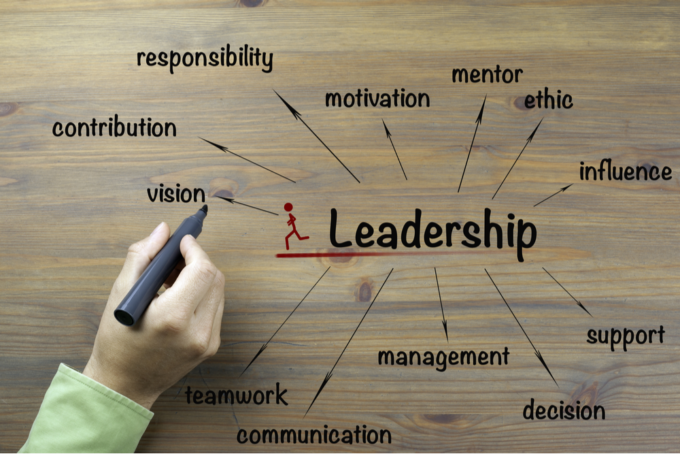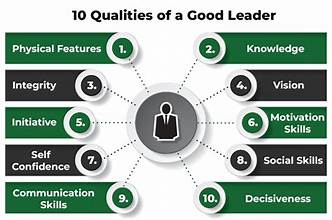
In the dynamic landscape of 2024, leadership is more critical than ever. As organizations adapt to rapid technological advancements and shifting work environments, effective leadership requires a refined skill set tailored to contemporary challenges. This article delves into essential strategies for mastering leadership in 2024, offering actionable insights for navigating a rapidly evolving workplace.
1. Embrace Technological Literacy
In an era where technology is integral to business operations, leaders must be technologically literate. This doesn’t mean you need to be a tech expert, but having a solid understanding of emerging technologies like artificial intelligence (AI), machine learning, and blockchain is crucial.
Key Actions:
- Stay Informed: Regularly update your knowledge about technological trends affecting your industry.
- Leverage Tech Tools: Utilize technology to streamline operations, enhance productivity, and improve decision-making processes.
- Promote Digital Literacy: Encourage your team to embrace technological tools and provide training as necessary.
2. Foster Adaptability and Resilience
The pace of change in today’s workplace demands adaptability and resilience from leaders. The ability to pivot quickly in response to market shifts or unexpected challenges is a hallmark of effective leadership.
Key Actions:
- Encourage Flexibility: Cultivate a culture that values adaptability and is open to change.
- Develop Resilience: Implement strategies to manage stress and recover from setbacks, both personally and for your team.
- Be Proactive: Anticipate potential challenges and develop contingency plans to address them.
3. Prioritize Emotional Intelligence (EI)
Emotional Intelligence (EI) has become increasingly important in leadership. Leaders who excel in EI can build stronger relationships, navigate conflicts more effectively, and create a positive work environment.
Key Actions:
- Self-Awareness: Regularly assess your emotional strengths and areas for improvement.
- Empathy: Develop the ability to understand and share the feelings of others, which enhances team cohesion and morale.
- Communication Skills: Enhance your ability to communicate clearly and effectively, both verbally and non-verbally.
4. Cultivate Inclusive Leadership
Diversity and inclusion are no longer just buzzwords; they are fundamental to successful leadership. Inclusive leaders foster a workplace where all voices are heard and valued.
Key Actions:
- Promote Diversity: Actively seek diverse perspectives and backgrounds when building your team.
- Ensure Equity: Create equitable opportunities for all team members to contribute and advance.
- Support Inclusivity: Implement policies and practices that support an inclusive work environment and address biases.
5. Develop Strategic Vision
Effective leaders must possess a strategic vision to guide their organizations towards long-term goals. This involves setting clear objectives, planning strategically, and aligning team efforts with organizational goals.
Key Actions:
- Set Clear Goals: Define and communicate your organization’s vision and objectives clearly.
- Strategic Planning: Develop and implement strategic plans that align with your vision and adapt to changing circumstances.
- Monitor Progress: Regularly review and adjust your strategies to ensure alignment with your long-term goals.
6. Enhance Decision-Making Skills
Strong decision-making skills are essential for navigating complex challenges and opportunities. Leaders must make informed decisions quickly and confidently, often with incomplete information.
Key Actions:
- Gather Information: Collect and analyze relevant data to inform your decisions.
- Consider Alternatives: Evaluate various options and their potential impacts before making a decision.
- Learn from Experience: Reflect on past decisions to identify lessons learned and improve future decision-making processes.
7. Build a Collaborative Culture
Collaboration is key to achieving organizational success. Leaders should foster a collaborative environment where team members work together effectively and share knowledge and resources.
Key Actions:
- Encourage Teamwork: Promote collaboration through team-building activities and cross-functional projects.
- Facilitate Communication: Implement tools and processes that enhance communication and information sharing among team members.
- Recognize Contributions: Acknowledge and reward collaborative efforts and successes.
8. Invest in Continuous Learning
The pace of change in the workplace necessitates continuous learning. Leaders should model a commitment to personal and professional growth and encourage their teams to pursue ongoing development.
Key Actions:
- Pursue Professional Development: Engage in leadership training, workshops, and courses to stay current with industry trends and best practices.
- Support Team Learning: Provide opportunities for your team to develop their skills and knowledge.
- Promote a Learning Culture: Foster an environment where learning is valued and encouraged.
9. Lead with Integrity and Authenticity
Trust is the foundation of effective leadership. Leaders who demonstrate integrity and authenticity build stronger relationships and foster a positive organizational culture.
Key Actions:
- Model Integrity: Demonstrate honesty, transparency, and ethical behavior in all your interactions.
- Be Authentic: Lead in a way that reflects your true values and principles.
- Build Trust: Cultivate trust through consistent actions, open communication, and respect for others.
10. Focus on Employee Well-Being
The well-being of your team is integral to organizational success. Leaders should prioritize the mental, emotional, and physical health of their employees.
Key Actions:
- Promote Work-Life Balance: Encourage practices that support a healthy balance between work and personal life.
- Provide Support: Offer resources and support for mental health and stress management.
- Foster a Positive Environment: Create a work environment that promotes overall well-being and job satisfaction.
Conclusion
Mastering leadership skills in 2024 requires a blend of technological acumen, emotional intelligence, adaptability, and strategic vision. By embracing these essential strategies, leaders can navigate the complexities of the modern workplace and drive their organizations toward success. Continuous learning, ethical leadership, and a focus on employee well-being will further enhance your ability to lead effectively in a rapidly evolving world.

